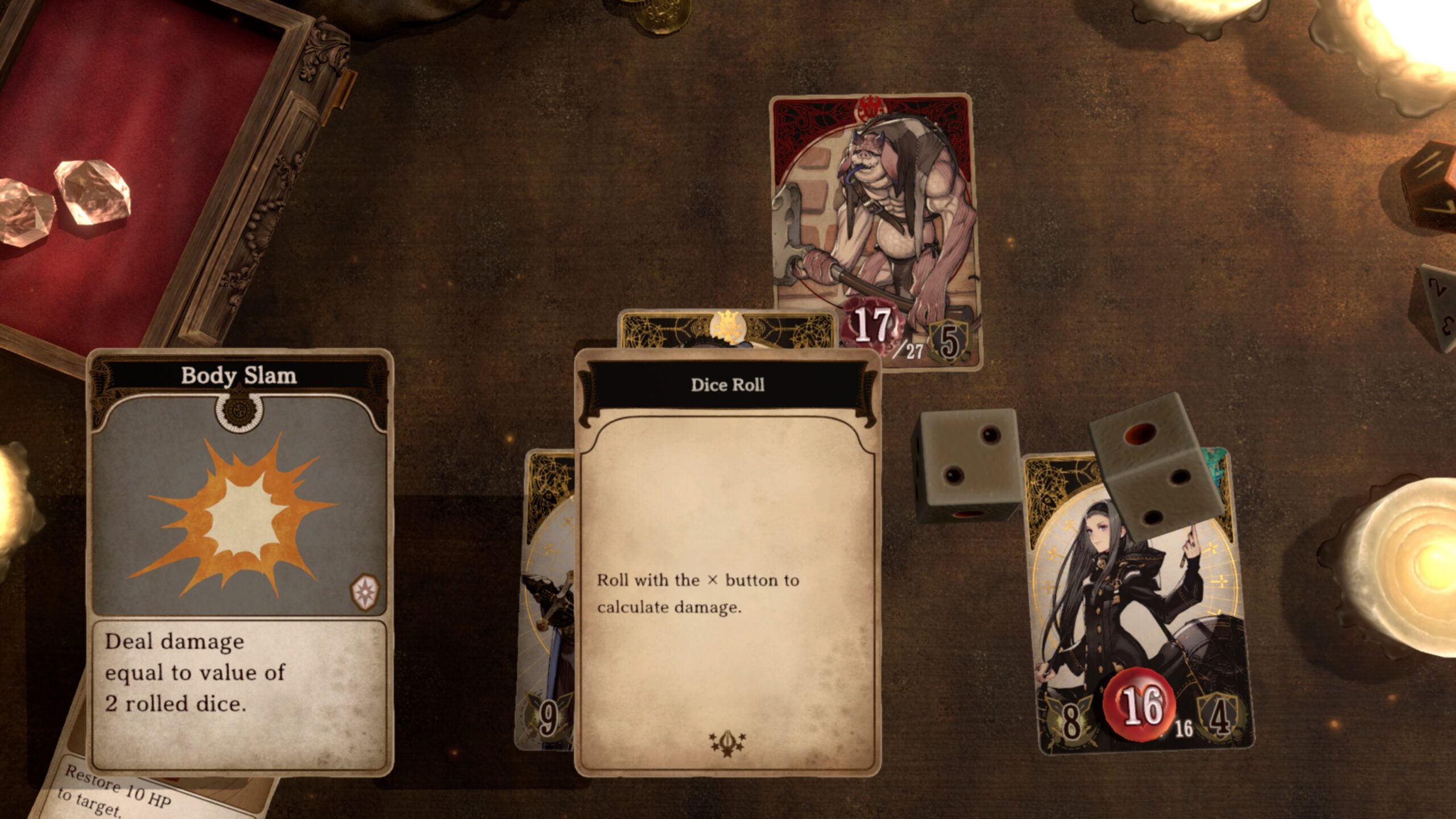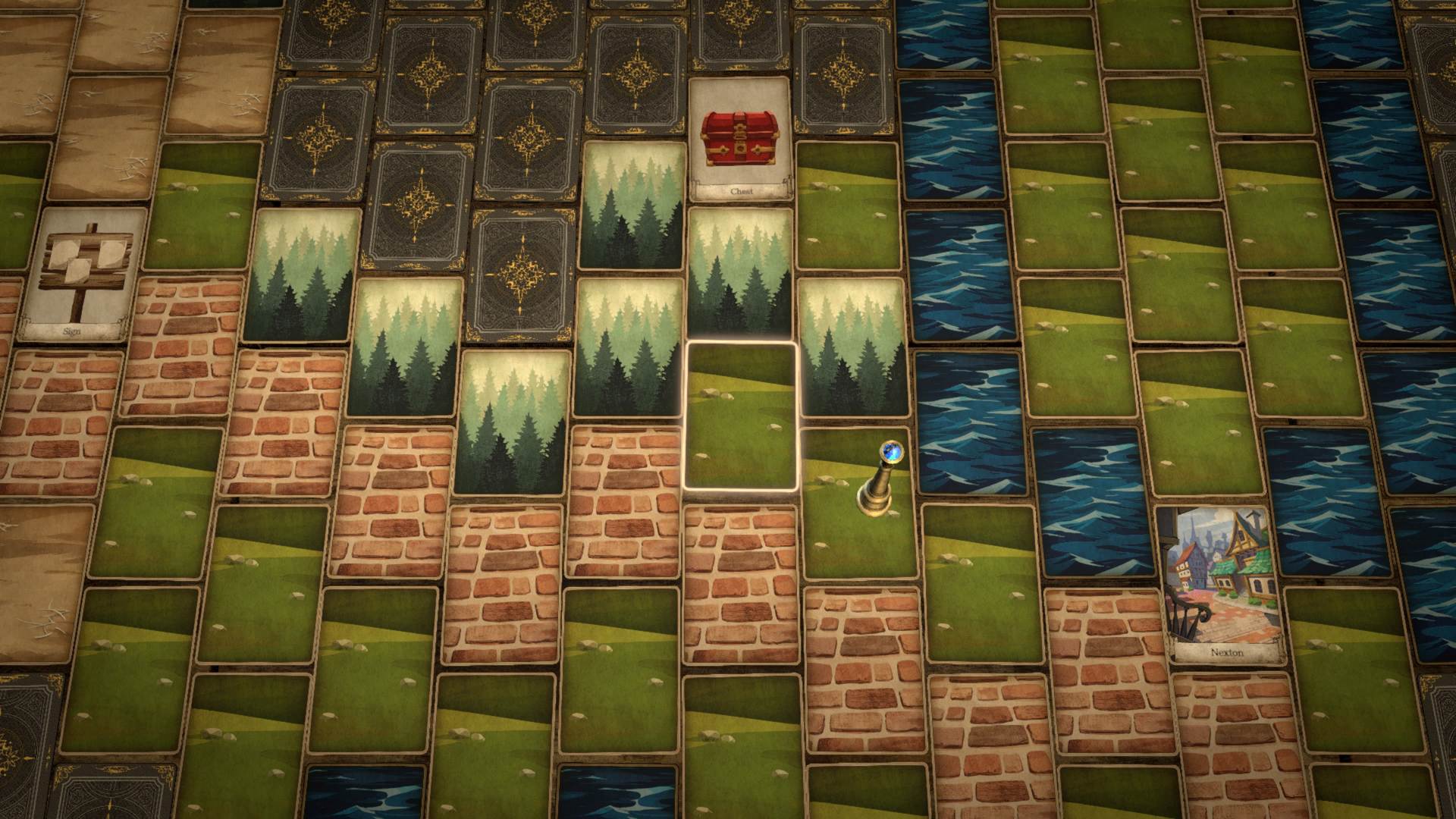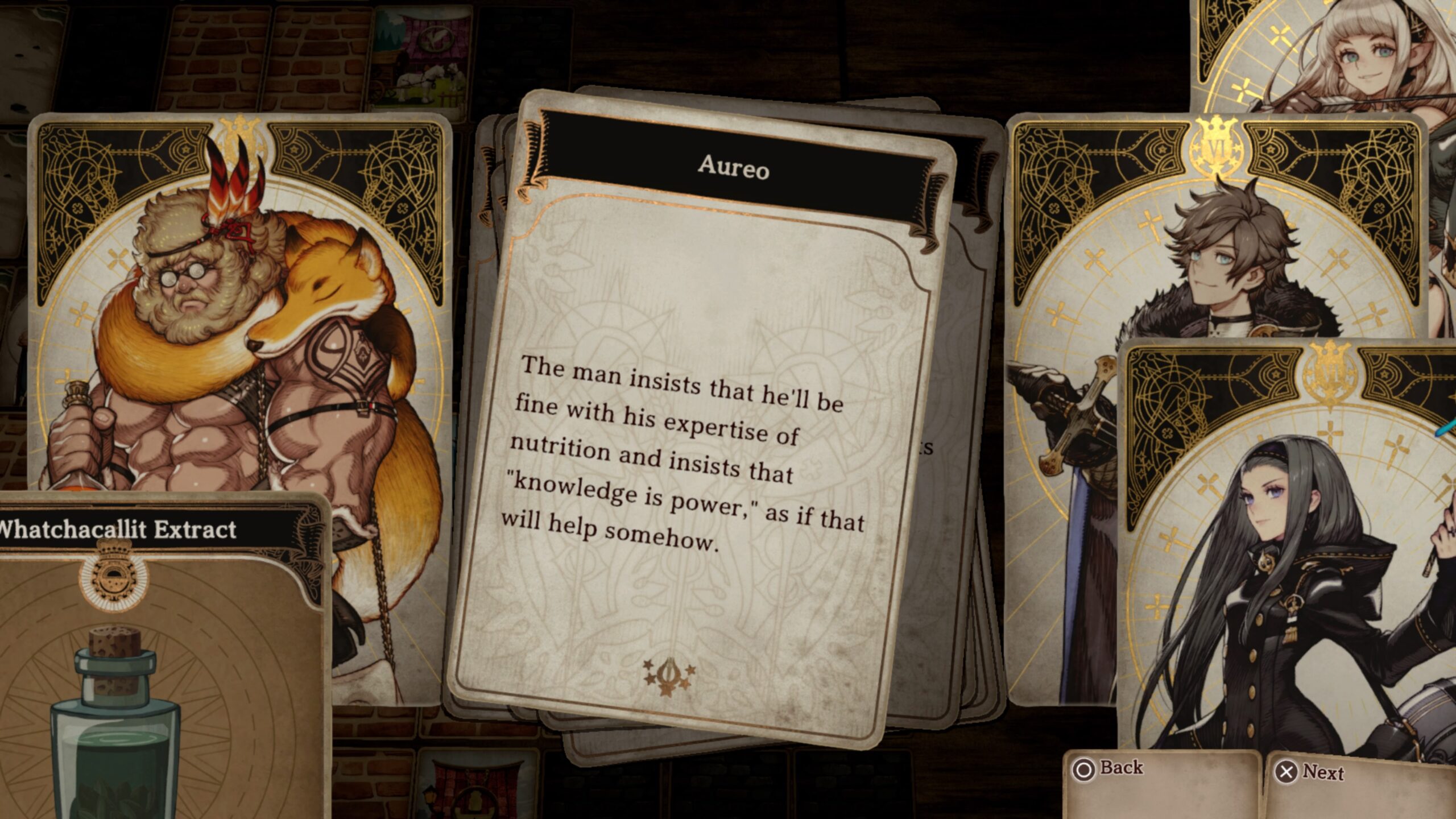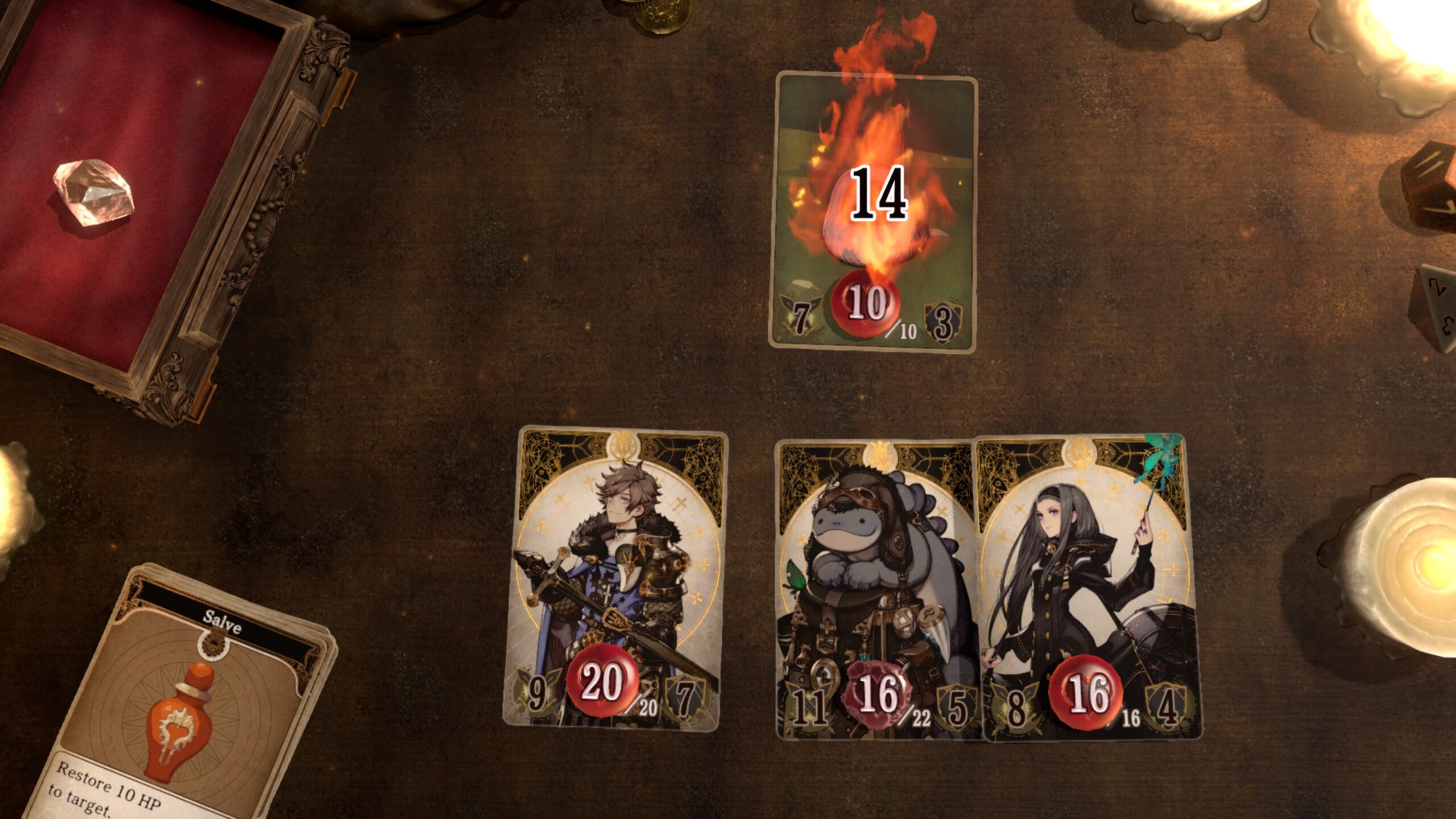52-card RPG
It’s really neat to see something committed to a concept like Voice of Cards: The Isle Dragon Roars is. It’s a role-playing game that is built on cards, not just in aesthetic or mechanics, but in everything. Everything in Voice of Cards is cards: dialogue choices, menus, shops, even the map itself. It’s a story being told as though it’s been dealt out from a massive deck, one art-laden card after the other.
What makes Voice of Cards so fascinating also ends up being its stumbling block at times though. Where in some places its limitations and constraints create incredible moments, other times, it detracts from the journey at hand. It’s a good adventure, and feels like it’s the foundation for what could be more.
Voice of Cards: The Isle Dragon Roars (PC, PS4 [reviewed via PS5], Nintendo Switch)
Developer: Square Enix
Publisher: Square Enix
Released: October 28, 2021
MSRP: $29.99
The setup of Voice of Cards is that you’re playing the main character, who you get to name and is usually addressed to “you.” He’s joined by Mar, a kindly monster companion, and soon after Melanie, a vengeful witch, on a quest to hunt a reawakened dragon. The queen has offered a bounty to whoever brings back its head, and your trio chases after it, hot on the heels of another trio of heroes who hail from the Ivory Order.
It’s really enjoyable how you end up playing the underdog to the traditional heroes, and the dialogue options let you really lean into being the bounty-hunting would-be hero with a heart of gold, contrasted with the Ivory Order’s stoic paragons of justice. The game master eggs you on a bit, too; throughout the narrative, an unseen narrator guides you through all the action. He lays out the cards, narrates all the dialogue (including each characters’), and drops little asides when you land critical blows or take a big hit.
The “everything-is-cards” approach is really appealing from the start. It’s a unique look for Voice of Cards, bolstered further by the excellent character art. The creative team behind Voice of Cards is stellar, and it shows, from the individual designs of characters like Melanie and Bruno to the monsters you run into throughout your journey.

And it would be easy to think that, with all the cards, this is a deck building game. It is absolutely a traditional RPG; every member of your party has four slots for skills that you can use in battle, either freely or by spending gems that you generate every turn. The gems and cards, as well as surprisingly pretty animations of cards flipping around and performing mid-air acrobatics, do lend it a tabletop feel. But this is closer to Final Fantasy than Slay the Spire.
The combat is good, though it stagnated a bit as time went on. Initially, there’s a lot to unpack, as you’re recruiting new party members and learning the elemental weaknesses and situational boons you can utilize to rout the enemy. In some of the later areas and dungeons though, I felt myself falling into a straightforward, infallible routine against every encounter.
It was only very, very late-game battles that felt like they pushed me to adjust my system and adapt on the fly. Party members also felt like they had very distinct, set roles with only a little room to flex and assist in other ways beyond their defined means. Characters will have a few abilities that can act as healing options, but the limited number of skills I could equip meant I often found myself sticking to a core trio that I could really negotiate down into a clean, efficient monster-slaying machine.

A little bit of tedium in battles would’ve been fine, if not for the movement on the map. Hopping your marker along card-by-card can start to wear on you over long sessions, and the random encounters are fairly frequent. The ability to “jump,” or warp to any card you’ve already turned over, is a huge benefit here. But even then, I was sometimes using that jump just to cut corners through dungeons faster.
Voice of Cards‘ story has its own peaks and valleys, too. The art and music carry much of the early game, as it starts out as a straightforward hero’s journey. Little side-stories play out in towns, and as the party grows to encompass five different characters, it does start to feel like the start of a good traveling band of adventurers.
But it’s not long after that group comes together that the story starts to wrap, and ultimately, the length of Voice of Cards ends up feeling like a double-edged sword. On the one hand, I loved it for being a short, sweet RPG compared to the titanic size of others. I saw credits roll around 10 to 11 hours in, and spent another hour or so cleaning up a few lingering side quests and secrets. Not every twist was earth-shattering, but Voice of Cards pulls a few rugs out from underneath the player, and certain individual moments later in the story really shone through and washed over any tedium.
At the same time, it felt like I barely got to know these characters by the time some of their big, emotional climaxes happen. And hampering that still is the game master, as every character has very expressive art but the same voice. It’s like playing a one-on-one tabletop role-playing game, player and GM, and as good as the game master’s voice actor is, I would’ve loved these characters to get their own voices.

I don’t mean to harp on too much, because there’s more I enjoyed in Voice of Cards than what I didn’t. There’s really something to be said for a good, solid RPG you can finish in a weekend, and Voice of Cards is exactly that. You can see the pretty full breadth of its story in a single go if you’d like, and there’s a branching ending that felt like it rewarded my studiousness in exploring the map as much as I could.
It’s good, but it falls short on its own trappings too often to feel great. Where the cards flourish in some areas, they feel hampering or underutilized in others. I would love to see this explored further, to really see the devs and Square Enix do more within this kind of space. One late-game encounter used the cards both visually and functionally in a way that really took me aback, but it also made me wonder why it took until the story’s end to pull a trick like that.
If you’re looking for an enjoyable RPG with some novel ideas and strong presentation behind it, Voice of Cards can easily eat up a weekend or two. It’s sweet and doesn’t overstay its welcome, even when I wished it would. While those factors aren’t enough for it to match up against the best-in-class competitors, there are many worse ways to spend a cozy fall evening than curled up with Voice of Cards.
[This review is based on a retail build of the game provided by the publisher.]









